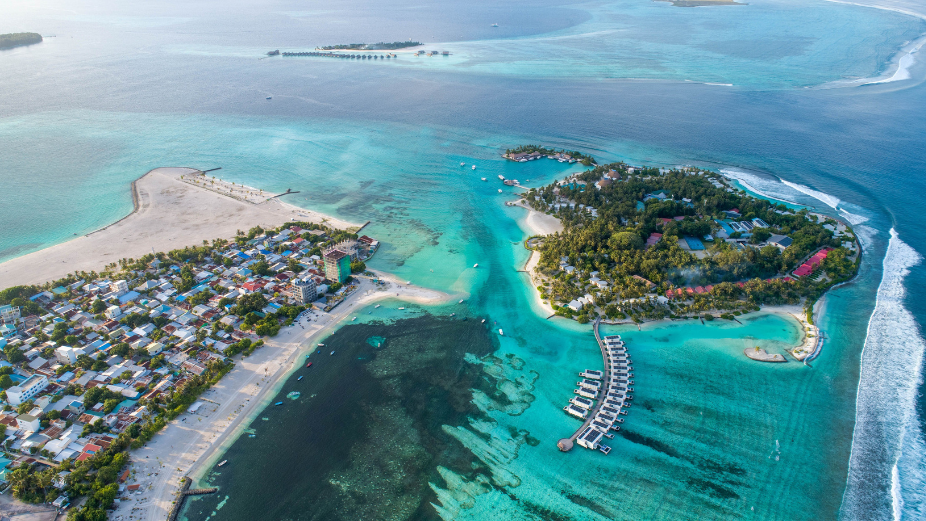
The recent drowning of a Chinese tourist while snorkelling near Maafushi has cast a harsh light on the safety practices within the Maldives’ burgeoning local tourism sector. This tragic event has exposed significant deficiencies in safety regulations and oversight, prompting calls for immediate reforms to prevent future incidents.
A Growing Sector with Lax Regulations
Local tourism in the Maldives has seen rapid growth, offering travellers a more affordable and authentic experience compared to luxury resorts. However, this expansion has not been matched by the implementation of stringent safety measures. Unlike resorts that employ dedicated staff for various tasks, including safety, many local guesthouses and excursion operators function with minimal personnel, often prioritising cost-efficiency over the well-being of tourists.
The widow of the deceased tourist revealed alarming details in an interview with a local newspaper. She reported that the snorkelling excursion lacked basic safety precautions: the boat crew did not provide essential information about sea conditions, the equipment was outdated, and no one on board was trained in administering CPR or first aid. “There was a complete absence of safety protocols,” she lamented. “Had there been proper measures in place, my husband might still be alive.”
Inadequate Oversight and Enforcement
Currently, island councils are responsible for overseeing local tourism activities. However, they frequently lack the resources and authority needed to enforce comprehensive safety standards. The absence of mandatory inspections for equipment, qualified lifeguards, and designated safe swimming areas has made local tourism operations more susceptible to accidents. The decentralised approach has its merits, but without adequate support and clear guidelines from the central government, island councils struggle to maintain safety standards.
Learning from International Practices
Other popular tourist destinations have faced similar challenges and implemented effective solutions. For instance, Thailand, after experiencing several tourist fatalities, introduced strict regulations for water activities. Operators are now required to provide life vests, employ certified guides, and conduct safety briefings before excursions.
Australia’s Great Barrier Reef tours adhere to rigorous safety protocols, including mandatory equipment checks, trained medical personnel on board, and strict adherence to weather advisories. These measures have significantly reduced the number of tourist accidents and boosted confidence in the tourism industry.
Steps the Maldives Must Take
To address these issues, the Maldives’ Ministry of Tourism should develop and enforce national safety standards for all tourism operators. This includes mandatory training for staff in first aid and emergency response, regular equipment inspections, and strict adherence to safety protocols during excursions.
Empowering island councils with greater authority and resources is essential. Providing them with funding and training can enable more effective local oversight. Additionally, establishing a certification system for operators who meet international safety standards could incentivise best practices.
The government might also consider offering incentives to smaller guesthouses and operators to upgrade their safety measures. Tax breaks or grants for purchasing new equipment and training staff could encourage compliance without imposing undue financial burdens.
Protecting the Maldives’ Reputation
The Maldives’ appeal as a tourist destination relies heavily on its image as a safe and idyllic paradise. Repeated incidents like the recent drowning could tarnish this reputation, leading to a potential decline in visitor numbers. Tourists are increasingly prioritising safety when choosing destinations, and negative perceptions can have long-lasting impacts on the industry.
Environmental concerns also play a role. Unchecked development and inadequate infrastructure can lead to degraded natural resources, which are central to the Maldives’ allure. Sustainable tourism practices must be integrated into the industry’s growth strategy to preserve the islands’ natural beauty.
The death of the Chinese tourist is a tragic reminder of the pressing need for improved safety standards in the Maldives’ local tourism sector. By learning from other countries and implementing comprehensive regulations, the Maldives can enhance tourist safety and maintain its status as a world-renowned destination.
We must act now to prioritise safety. It’s not just about preventing accidents—it’s about safeguarding the future of our tourism industry and the livelihoods that depend on it.








